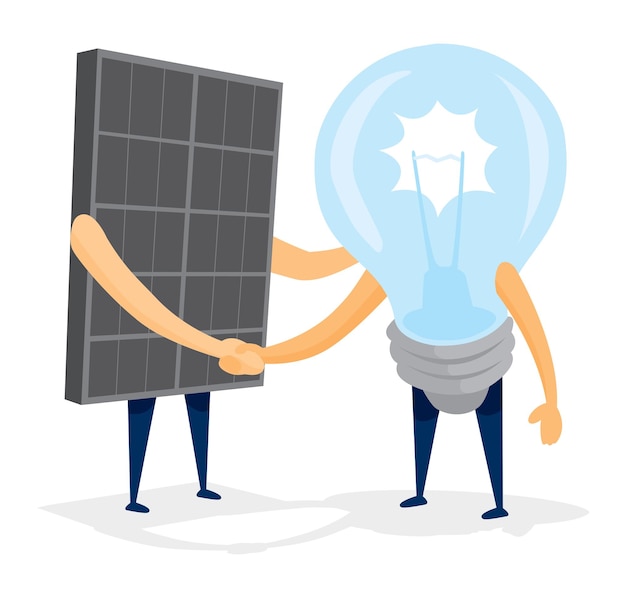Solar Panels – Exploring the Facts

Solar panels are a game-changer in the quest for renewable energy.
Solar panels harness the power of the sun to generate electricity.
They are a clean, sustainable and environmentally friendly source of energy.
The cost of solar panels has decreased significantly in recent years, making them more accessible to everyone.
Solar panels can save you money on your energy bills in the long run.
Did you know that the energy from the sun reaching the Earth in just one hour can power the entire world for a year?
Solar panels are not only for rooftops; they can also be integrated into the design of buildings and roads.
Solar panels can withstand extreme weather conditions, including hail and heavy snowfall.
Solar panels do not produce any greenhouse gas emissions, making them a vital tool in combating climate change.
Solar panels require minimal maintenance, with most systems only needing to be cleaned occasionally.
Solar panels can generate electricity even on cloudy days, although their efficiency is reduced.
The lifespan of solar panels is typically around 25-30 years, making them a worthy long-term investment.
Solar panels can be a source of income through government incentives and net metering programs.
Some countries have achieved impressive solar energy production levels, such as Germany, China, and the United States.
Solar panels can be an excellent backup power source during power outages or emergencies.
Solar Panels – Exploring the Facts part 2
Solar panels can be used to power remote areas where traditional electricity grids are not accessible.
They can be a solution to the energy needs of developing countries, particularly in rural areas.
Solar panels can be installed on boats and recreational vehicles, providing a sustainable energy source while on the move.
Solar panels are silent and produce no noise pollution, unlike some other energy sources.
Solar panels require no fuel, eliminating the need for transportation and extraction associated with fossil fuels.
Solar panels can be an educational tool, teaching children about renewable energy and the importance of sustainability.
Solar panels have become more aesthetically pleasing, with many design options available to match architectural styles.
Solar panels can help reduce dependence on fossil fuels and promote energy independence.
The process of manufacturing solar panels is continually improving, reducing its carbon footprint over time.
Solar panels can be combined with energy storage technologies, such as batteries, for continuous power availability.
Solar panels contribute to job creation in the renewable energy sector.
The energy savings from using solar panels can offset their initial installation costs in a few years.
Solar panels can be recycled, reducing waste and ensuring the sustainability of the technology.
They can be installed on agricultural lands, helping farmers generate additional income through solar energy production.
Solar panels can reduce the strain on electrical grids during peak usage times.
Solar panels can increase the value of a property, making them an attractive investment for homeowners.
Solar panels can be easily scalable, allowing for the construction of both small and large-scale solar farms.
Solar panels can be an essential element in disaster resilience planning by providing a reliable power source in critical situations.
Solar panels help mitigate the effects of air pollution by reducing the need for fossil fuel-burning power plants.
Solar panels generate energy without the need for water, making them an ideal solution in water-scarce regions.
Solar panels can be integrated into agricultural practices by providing shade and protecting crops from extreme weather conditions.
Solar panels are a silent contributor to reducing urban noise pollution, as they have no moving parts.
Solar panels have no moving parts, which means they require less maintenance and are less prone to breakdowns.
Solar panels can be a life-saving energy source during natural disasters or humanitarian crises.
Solar panels are constantly evolving, with new technologies such as thin-film and concentrated solar power being developed.
Solar panels can power electric vehicles, creating a sustainable and clean transportation system.
Solar panels can be installed in space, providing power for satellites and future space missions.
Solar panels can be a source of income for homeowners through feed-in tariff programs, where excess energy can be sold back to the grid.
Solar panels are scalable and can be installed in both urban and rural areas, catering to various energy needs.
Solar panels are an investment in the future, ensuring a cleaner planet for generations to come.
